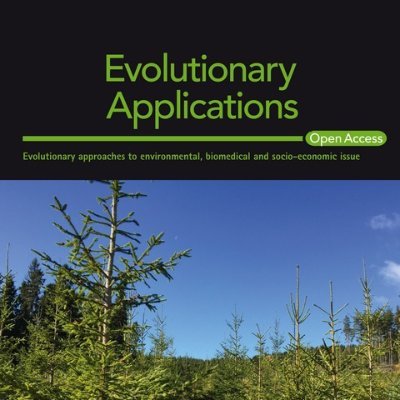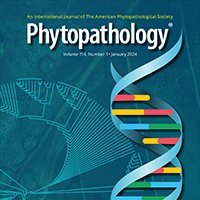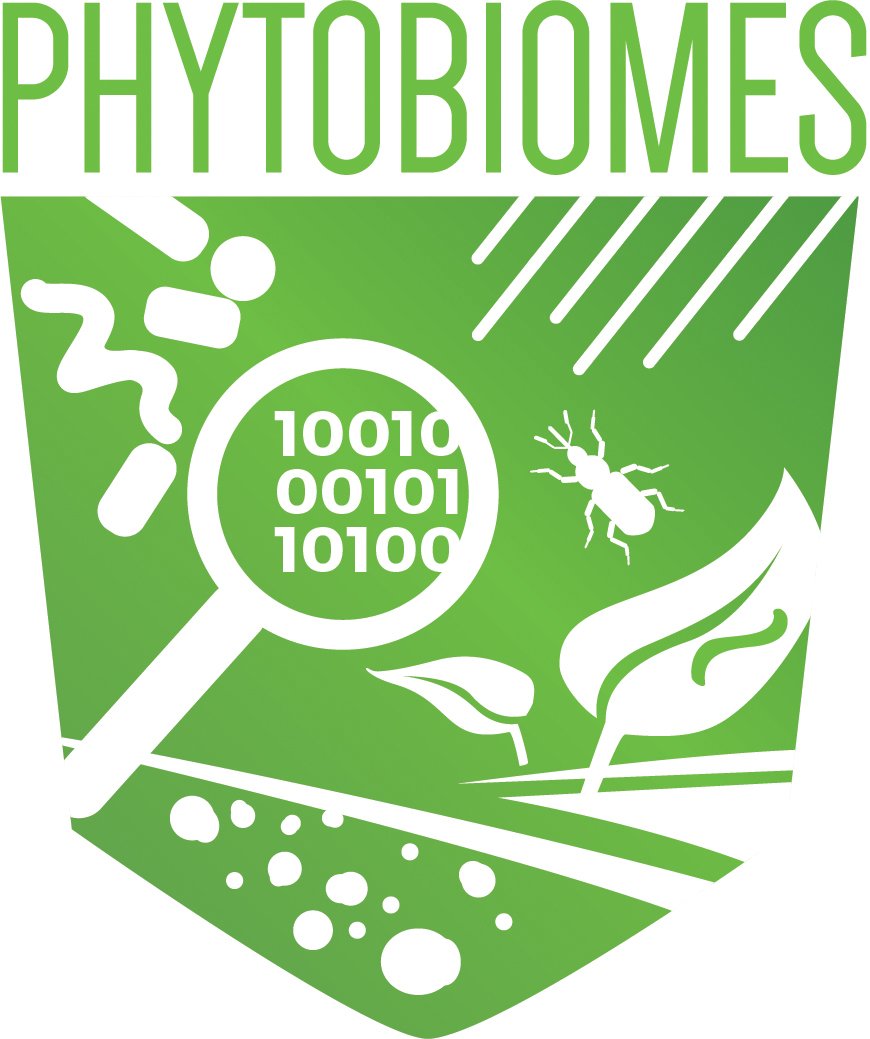
Neha Potnis
@nehapotnis
Followers
588
Following
250
Media
2
Statuses
101
Associate Professor at Auburn University, Studying molecular plant-microbe interactions.
Auburn, Alabama
Joined May 2015
We are hiring! https://t.co/tGiiMPU4is anyone recently graduated/soon to graduate postbac researchers looking for opportunities in computational biology are welcome to reach out to us.
0
2
6
Curious about how pathogen responds to host resistance and climate change simultaneously? Elevated O3 increases Xanthomonas diversity and severity on resistant peppers. w/ @nehapotnis 📷: Fig. 1 at https://t.co/AxINXlEuB0
0
2
3
Despite this variability, we find signatures of parallel evolution, which can provide clues to the long-term evolutionary processes shaping the pathogen population in this arms race.
0
0
1
Our results indicate that climatic fluctuations can modify the endemic disease risk and the pathogen adapts to these climatic shifts by maintaining diversity of co-occurring lineages that show variable fitness levels under changing climatic conditions.
1
0
1
In this manuscript, we present an integrated approach using metagenomics to systematically study within-species variation in pathogen population and use epidemiological modeling to link the risk factors to the eco-evolutionary processes driving the disease epidemics.
1
0
1
This work led by graduate students, @hreeshee, @Amanpreet089, Ivory Russell, @DestinyBrokaw, and Ogonnaya Romanus was a huge effort, both in terms of gathering the field samples and wrangling with the big data.
1
0
2
Check out our latest preprint to learn more about how disease outbreaks unfold in the agricultural fields. Thanks to @FoundationFAR New Innovator program, growers and extension agents for supporting this work. https://t.co/kMLxOcZFRk
2
4
11
Climatic fluctuations modulate eco-evolutionary processes associated with pathogen dynamics and continue to fuel bacterial spot ... https://t.co/mNd4r5VQuZ
#biorxiv_micrbio
0
3
2
0
1
4
Very excited to host Carolee as the keynote speaker for our symposium! Thank you Carolee for sharing your work on mushrooms and microbiome. Looks like mushrooms are fun systems to work with!
0
4
15
A great team of students and postdocs who worked on this project @MichelleMPena_ , @hreeshee, Kylie Weis, Eric Newberry, Naama Wagner and Robert Bowers.
0
0
1
Thanks to the JGI CSP program for supporting sequencing of a collection of nonpathogenic xanthomonads, a largely ignored group! We used a powerful association approach to understand how xanthomonads may have established association with the plants across a continuum of lifestyles
1
0
1
Happy to see this work finally out! A great collaboration with Marie-Agnès Jacques, Jeff Jones, @VinatzerLab, Tal Pupko, and @jgi!
academic.oup.com
Abstract. The genus Xanthomonas has been primarily studied for pathogenic interactions with plants. However, besides host and tissue-specific pathogenic st
3
12
33
🦠🧬New paper🧬🦠 A family of ICEs infiltrated the P. syringae species complex! PsICEs are highly recombinogenic but conserve backbone genes punctuated by diverse cargo genes. The most common one? A transposon able to manipulate bacterial metabolism. 👇 https://t.co/lvXE39wtjo
pnas.org
Integrative and conjugative elements (ICEs) are self-transmissible mobile elements that transfer functional genetic units across broad phylogenetic...
2
16
45
Preprint alert! How does pathogen population respond when challenged with host defense and ozone stress? Can we predict pathogen evolution under altered environment? We seek answers to these questions in this manuscript.
biorxiv.org
### Competing Interest Statement The authors have declared no competing interest.
0
7
26
Looking for a great place to work? Join our team at Auburn University!
0
4
11
FFAR is now accepted nominations for the 2024 New Innovator in Food & Agriculture Research Award! This award provides early-career scientists the investment needed to propel them into successful research careers. Nominations are due Feb. 21. Learn more: https://t.co/D47ShiTdXU
foundationfar.org
The New Innovator in Food & Agriculture Research Award provides early-career scientists the investment needed to propel them into successful research careers.
0
3
4
Super happy to share that my first paper as a postdoc in Auburn University is out. Thanks @nehapotnis for the opportunity and I would like to extend my thanks to all my lab members @palashghosh1093 @hreeshee for the help and support. https://t.co/cpSXpTn08o
journals.asm.org
T6SS has received attention due to its significance in mediating interorganismal competition through contact-dependent release of effector molecules into prokaryotic and eukaryotic cells. Reverse-g...
0
2
7
Great webinar today with @hreeshee and special guest @nehapotnis from @AuburnU about how the Biotic and abiotic stress distinctly drive the phyllosphere microbial community structure. You can rewatch it here https://t.co/qXv5eTFNfH
0
2
6
Looking forward to the webinar about Biotic and abiotic stress distinctly drive the phyllosphere microbial community structure later this week. There is still time to register: https://t.co/LQAlN1Iy0q
0
13
34












